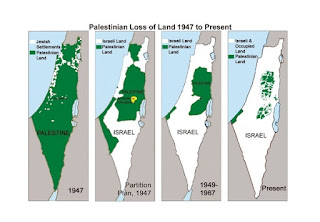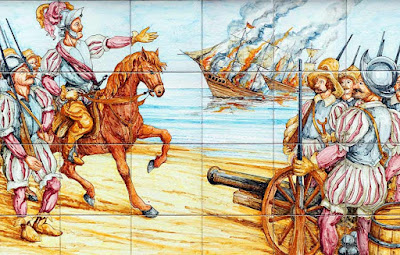By Martin Cohen
Review article on the occasion of the publication of ‘Chernobyl’ by Emin Altan
Now here's a coffee table debate starting book with a difference. Emin Altan’s photographic tale of the nuclear power station that exploded on 26 April 1986 is both a grim journey and yet somehow a poetic one. Page after page of evocative images – black and white with just a hint of lost colour – speak not only about the folly of nuclear power, but of the greater folly of human conceit.
The images in the book for the most part fall into two categories. There are the are ones from the radiation-soaked exclusion zone that actually could be taken almost anywhere where human plans have been thwarted and decay has set in. A basketball court strewn with rubble, juxtaposed with a rediscovered photo – hopelessly mouldy – of children in gym gear exercising with sticks is an example that caught my eye. You sense that these children were imagining themselves as future world-beaters, and the reality of human transcience is brought home by the peeling decay of the abandoned gym.
There is a beauty in these decaying photographs that Altan’s book powerfully conveys. The book plays with images of life that are also images of death. This is a photographic essay that is about much more than Chernobyl. Better would be to say that it is about existential questions of human existence. Scenes of life abruptly halted blended with decades of inevitable decay But then, you might wonder, how does nuclear energy, always keen to claim to be the brave and the new, fit in? But it does very well, because, as I say in my contribution for the book, nuclear energy is a zombie technology… a technology that arises from the grave, if not every night, seemingly every decade, before stalking the Earth in pursuit of hapless victims.
Nuclear energy is eye-wateringly expensive, with effectively unlimited downstream costs for dealing with shuttered power stations and radioactive waste. It is the only human strategy for energy generation that also comes with a very real risk of one day destroying all human life on the planet.
Another paradox is that, in recent years the nuclear industry has sold its reactors not to wealthy countries - but to the world’s poorest: Sudan, Nigeria, Egypt, the Philippines, Indonesia… Why do such countries sign up for nuclear? The answer is finance deals, and dirty money for regimes. Which is why India and China, countries in which millions of people live below the poverty line and can’t afford electricity at all, are the world’s biggest spenders on nuclear.
However, the reasons why, once upon a time, all self-respecting environmentalists hated nuclear power are still there. It produces invisible pollution— radiation— with the potential to seep everywhere, causing genetic diseases that interfere with nature. After the explosion at Chernobyl, an invisible cloud slowly spread across the Earth poisoning food chains and leaving toxic residues in the seas and soils. Residues that would be toxic for thousands of years… And Chernobyl could have been far worse, had it not been for the heroism coupled with (ironically) the ignorance of the people who fought to prevent the plant exploding.
When I researched nuclear’s real share of the world energy pie for my book, The Doomsday Machine, a few years ago, what emerged very clearly was that renewables, including old technologies like hydroelectric, played a secondary but significant of the energy mix - but nuclear did not. It was, I wrote then, merely ‘the cherry’ on the top of the energy pie.
Because, while the technology of renewables steadily becomes cheaper and more efficient, nuclear energy steadily increases in cost, while efficiency gains remain purely speculative. Put another way, energy is a very complex issue, and simple one-size-fits-all solutions won’t work. It’s true, as as the nuclear lobby says, that renewables cannot easily replace nuclear for energy intensive industries and that their output is by nature erratic. It’s also true that for all the rhetoric, global primary energy consumption has not only increased over the last century, but has increased exponentially.
The conclusion, then surely, is that part of the solution to the world’s energy problem, the solution that removes the need for nuclear, is we have to stop the ever-increasing rate of energy consumption. However, this apparently virtuous aim is complicated, indeed made not virtuous at all, when it is realised that at the moment most of the world’s population already use rather modest amounts of energy, while it is a rich elite who gobble up the lion’s share. Yes, the careless consumption of the world’s rich has to be curbed, but on the other hand, a more equal distribution of income in the world must inevitably also create higher energy demand. Because, today, hundreds of millions of people lack access to sufficient energy, often with dire consequences for themselves and the environment. When people lack access to electricity for cooking and heating, they rely on solid fuel sources – mostly firewood, but also dung and crop waste. The use of wood for fuel often contributes to deforestation – even if in principle wood can be cropped sustainably. Electricity, on the other hand, allows refrigeration of food; washing machines for clothes; and light to read at night. In some countries today, children can be found sitting under street lights to do their homework. The energy problem of half of the world is energy poverty.
Fortunately, the kinds of energy needed by these families and individuals are increasingly within the ability of renewables to provide, while the demands of industry are flat or declining and possible to meet within the current energy mix – without needing nuclear. Without, likewise, needing us to answer all the existential questions. Which is just as well, as surely these have no easy answers.









